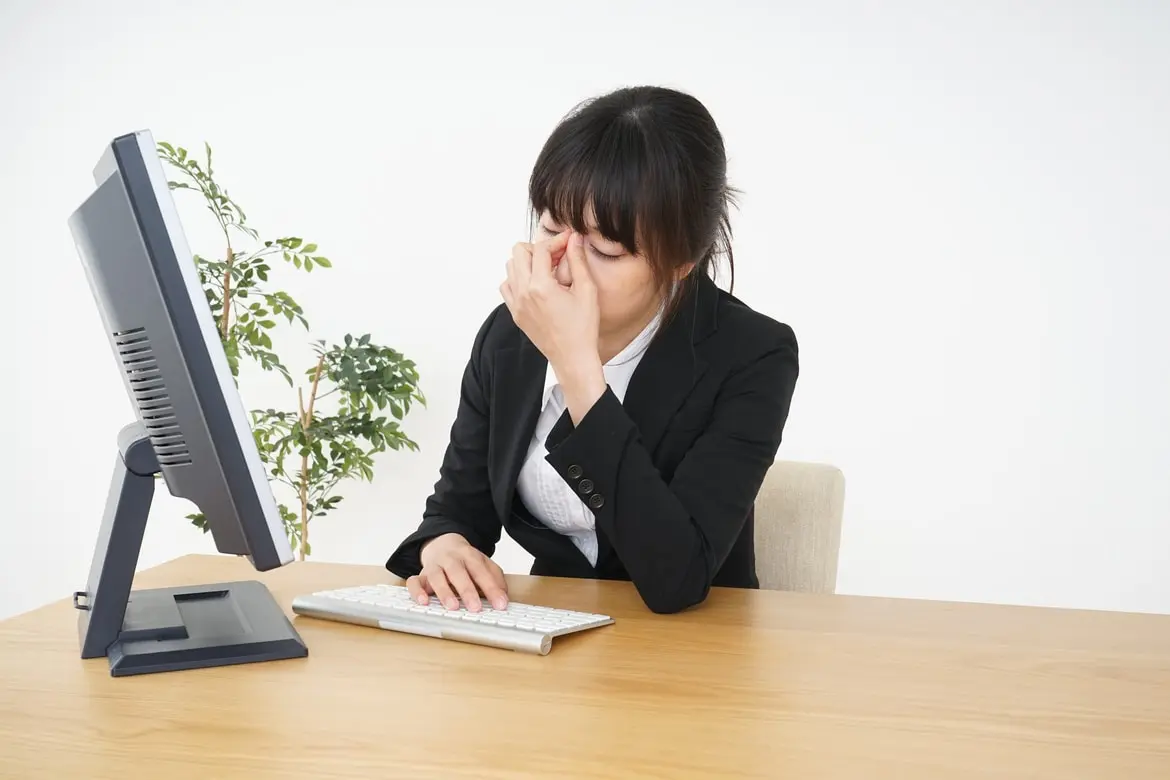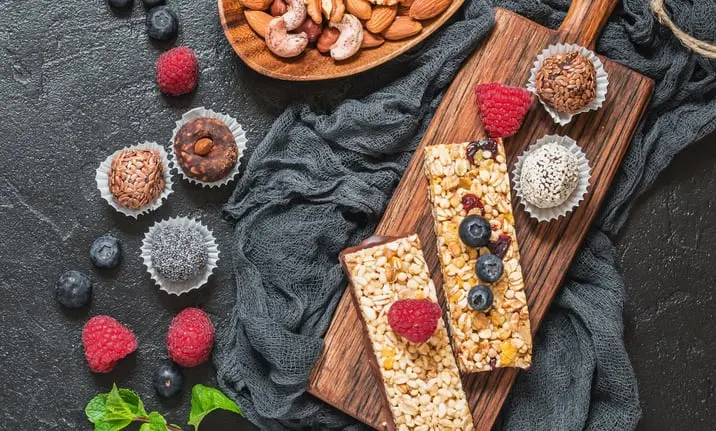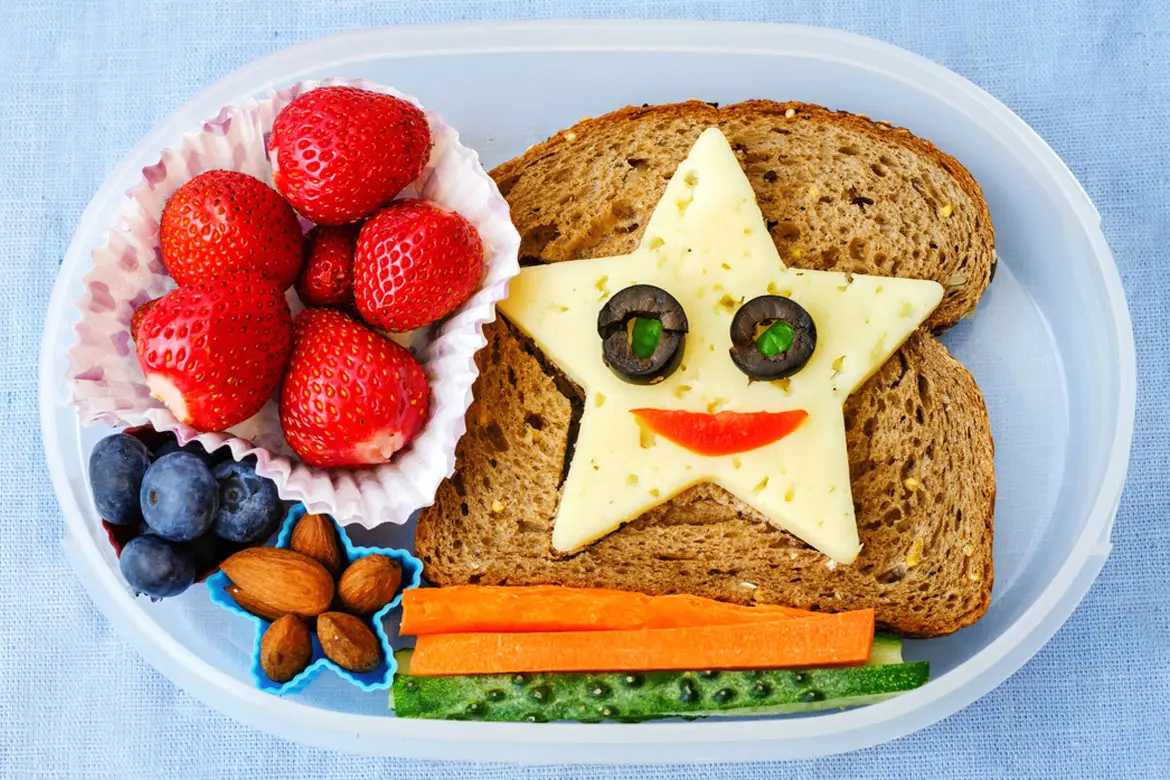You might be tempted to down a few cups of coffee to combat the fatigue, but too much caffeine can increase anxiety, make you jittery and contribute to insomnia.
Caffeine-free ways to stay alert and energised throughout the day
Going caffeine-free or at least reducing caffeine intake is definitely worth considering for its health benefits. Some of the changes you would observe when you give up caffeine include less anxiety, better sleep, fewer bathroom breaks, balanced hormones for women, better absorption of nutrients such as calcium, iron, and B vitamins, stronger and whiter teeth, and lower blood pressure.
Try these 10 tips to fight fatigue and stay alert throughout the day.
Plan your meals well
The food on your plate can be the deciding factor between a sluggish and a supercharged day. Many people skip breakfast and opt for a quick fix because they're in a rush but a hearty breakfast gives you the energy you require to focus at work or school. Always ensure you're eating a balanced mix of nutrients, and try to include protein and complex carbs in every meal. Wholegrains, nuts, vegetables and lean protein are all great options. The key here is to aim for balanced blood sugar levels so your energy will be consistent and you're less likely to feel sluggish throughout the day.
Exercise
Research suggests that regular exercise can give adults a significant and lasting energy boost. That's because exercise increases endorphin levels and improves overall cardiovascular health. It is recommended that 150 minutes of moderate aerobic activity spread across 3 – 4 days every week, will lead to better endurance and increased ability to concentrate at work.
Converse with your colleagues
Get up from your office chair every now and then to interact with your colleagues in person instead of via email. Besides work matters, take an interest in your colleagues' wellbeing or trade funny stories. Having a laugh can boost energy levels. Even introverts get a mood boost from social contact. Interacting with those around you and engaging in conversation will get your mind moving and make you feel more energised.
Get some sun
Research shows that sunlight exposure triggers the brain's release of serotonin, a hormone associated with boosting mood, while reducing the production of excess melatonin, a hormone which makes you feel sleepy. Try to spend at least 30 minutes a day outside in the sun. Aside from its mood-boosting effects, daylight can also help you sleep better at night. Early morning light is said to help reset your biological clock each day – it tells your brain to wake up when you need to, and keeps your biological clock on track so that you can get to sleep at night.
Breathe deeply
Breathing deeply shuttles more oxygen to various parts of your body, which can improve circulation and boost your dipping energy levels. While you're seated, place your hands over your stomach and breathe into your tummy so that your hands rise and fall with your breath. Breathe in deeply through your nose and let your belly push your hand out. Then breathe out through your mouth, with your lips pursed as if you were whistling. Do this for 10 full breaths. Deep breathing also decreases stress and anxiety, which in turn helps to boost your immune system, keeping you healthy and strong.
Stay hydrated
Did you know that fatigue is also a symptom of dehydration? When you skimp on water, the cells in your body shrink, so they can't function as efficiently, triggering feelings of fatigue. The most consistent effects of mild dehydration include increased fatigue, decreased vigour, headache, sleepiness and concentration difficulties. The solution is simple: a tall, cool glass of water. Staying hydrated will help your blood in transporting oxygen and other nutrients to your cells, boosting your energy and keeping you powered.
Try putting a few slices of lemon or cucumber in your water to give it a more interesting taste. Herbal teas are also a great caffeine-free alternative to coffee, for those who enjoy the comfort of sipping on a hot drink.
Take frequent short breaks
Continuously looking at a computer screen strains your eyes and worsens sleepiness. Taking periodic breaks prevents you from becoming fatigued and tired. A simple 5-minute break can help you slow down, relax your eyes and clear your head. Look away from the screen, or rest quietly with your eyes closed for a few minutes periodically throughout the day.
Have a power snack
Have a small, healthy snack every 4 hours throughout the day. It's much better to continually refuel your body before it runs empty than to wait until you're in danger zone and overdo it. Large meals can make you feel foggy and lethargic because digestion requires energy. Eating small snacks packed with certain nutrients such as iron (iron deficiency is a common source of fatigue), protein and fibre will give you sustained energy throughout the day.
Here are some examples of healthy, power snacks and their appropriate portion sizes that you can grab to keep the tummy from rumbling:
- 1 hard-boiled egg
- 1 cup of tuna
- 1 – 2 tablespoons of nut butter spread on apple slices or celery sticks
- 2 – 3 slices of cheese
- A handful of almonds
- ¼ cup of pumpkin seeds
- ½ cup of roasted chickpeas
- 1 cup of edamame
Get moving in your seat
Possibly one of the top causes of fatigue in deskbound workers is the inability to move around much in your seat. Luckily, there are some handy techniques to trick your body into thinking it's somewhere else other than stuck at a desk. Point and release your toes, grab shoulders with the opposite arm, roll your shoulders, pull your knees into your body, or do some neck rolls, heel lifts, or ankle circles. Then, give yourself a little love by massaging your calves or the back of your legs. The motions will keep the blood flowing in your body and stretch your muscles.
Make a good night's sleep a priority
It is no new news that many of us don't get quality sleep at night, and that is one main reason why we wake up feeling sluggish and grumpy in the morning. To ensure another energised 9-to-5, prioritise sleep and keep a regular sleep-wake schedule. Aim for 7 – 8 hours of sleep every night. Avoid bright screens – computers, TV, laptops – before you go to bed. Instead, try a hot bath or listen to classical music to snooze soundly. If you're someone who wakes up with hot flashes, leave a cup of iced water by your bedside so that you can sip on it to cool down your body temperature, and ease back into sleep.
















